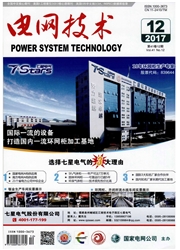

 中文摘要:
中文摘要:
借助协整理论、误差修正模型、Granger因果检验、脉冲响应及方差分解等计量方法,对改革开放以来中国城市化与电力消费水平在长期与短期内相互影响的动态关系进行分析。结果表明,中国城市化与电力消费水平之间存在长期稳定的均衡关系,但二者相互作用的短期效应和长期效应并不一致,在长期内二者互为Granger原因,但均不构成对方的短期Granger原因。且二者相互影响的效应存在明显的差异,电力消费对城市化有较大的作用强度,而城市化对电力消费的冲击作用不大。上述结论表明,电力是城市化的基础,推进城市化要坚持“电力发展既要有一定的超前性,又要保持均衡发展”的原则。
 英文摘要:
英文摘要:
With the help of econometric methods such as co-integration theory, error correction model, Granger causality test, impulse response and variance decomposition, the short- and long-term dynamic relation of interaction between electricity consumption level and urbanization in China since the reform and opening is analyzed. Analysis results show that there is a long-term and steady equilibrium relationship between electricity consumption level and urbanization in China, however the short-term effect and long-term effect of the interaction are not inconsistent; in the long-term the electricity consumption level and urbanization mutually act as Granger causality but do not constitute short-term Granger causality. The mutual interaction effect are obviously different too, electricity consumption greatly impacts on urbanization, yet the impact of urbanization on electricity consumption is not obvious. Above conclusion shows that the electricity consumption is the base of urbanization, to promote urbanization the principle, i.e., advance development of electric power in a certain degree as well as its balanced development should be kept, must be insisted.
 同期刊论文项目
同期刊论文项目
 同项目期刊论文
同项目期刊论文
 期刊信息
期刊信息
